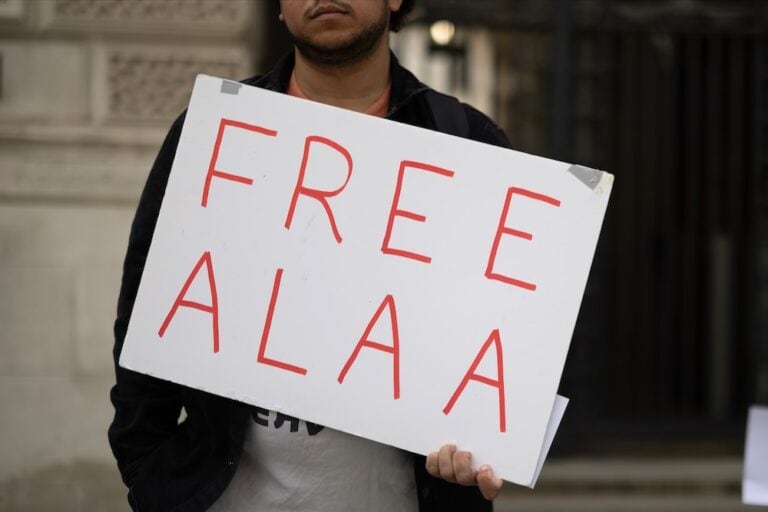The UK's recently-passed Online Safety Bill (OSB) promises to make the UK "the safest place" in the world to be online. In reality, the OSB will lead to a much more censored, locked-down Internet for British users.
This statement was originally published on eff.org on 19 September 2023.
The U.K. Parliament has passed the Online Safety Bill (OSB), which says it will make the U.K. “the safest place” in the world to be online. In reality, the OSB will lead to a much more censored, locked-down internet for British users. The bill could empower the government to undermine not just the privacy and security of U.K. residents, but internet users worldwide.
A backdoor that undermines encryption
A clause of the bill allows Ofcom, the British telecom regulator, to serve a notice requiring tech companies to scan their users – all of them – for child abuse content. This would affect even messages and files that are end-to-end encrypted to protect user privacy. As enacted, the OSB allows the government to force companies to build technology that can scan regardless of encryption – in other words, build a backdoor.
These types of client-side scanning systems amount to “Bugs in Our Pockets,” and a group of leading computer security experts has reached the same conclusion as EFF – they undermine privacy and security for everyone. That’s why EFF has strongly opposed the OSB for years.
It’s a basic human right to have a private conversation. This right is even more important for the most vulnerable people. If the U.K. uses its new powers to scan people’s data, lawmakers will damage the security people need to protect themselves from harassers, data thieves, authoritarian governments, and others. Paradoxically, U.K. lawmakers have created these new risks in the name of online safety.
The U.K. government has made some recent statements indicating that it actually realizes that getting around end-to-end encryption isn’t compatible with protecting user privacy. But given the text of the law, neither the government’s private statements to tech companies, nor its weak public assurances, are enough to protect the human rights of British people or internet users around the world.
Censorship and age-gating
Online platforms will be expected to remove content that the U.K. government views as inappropriate for children. If they don’t, they’ll face heavy penalties. The problem is, in the U.K. as in the U.S., people do not agree about what type of content is harmful for kids. Putting that decision in the hands of government regulators will lead to politicized censorship decisions.
The OSB will also lead to harmful age-verification systems. This violates fundamental principles about anonymous and simple access that has existed since the beginning of the Internet. You shouldn’t have to show your ID to get online. Age-gating systems meant to keep out kids invariably lead to adults losing their rights to private speech, and anonymous speech, which is sometimes necessary.
In the coming months, we’ll be watching what type of regulations the U.K. government publishes describing how it will use these new powers to regulate the internet. If the regulators claim their right to require the creation of dangerous backdoors in encrypted services, we expect encrypted messaging services to keep their promises and withdraw from the U.K. if that nation’s government compromises their ability to protect other users.



